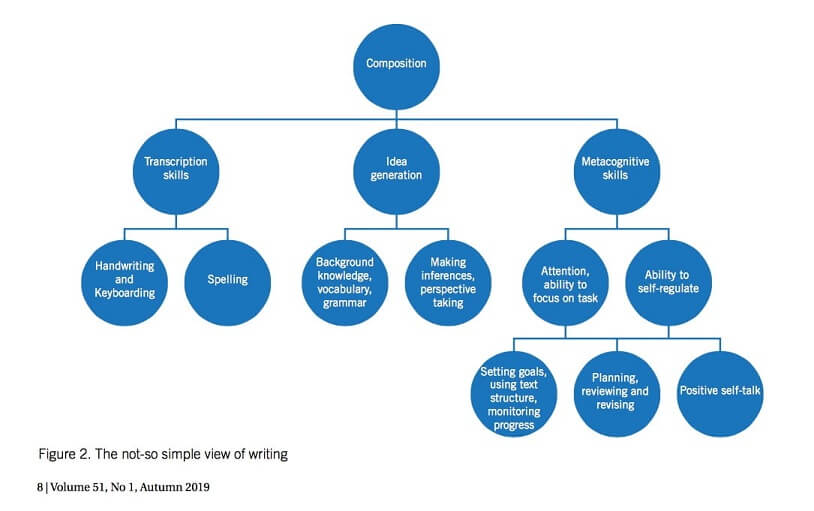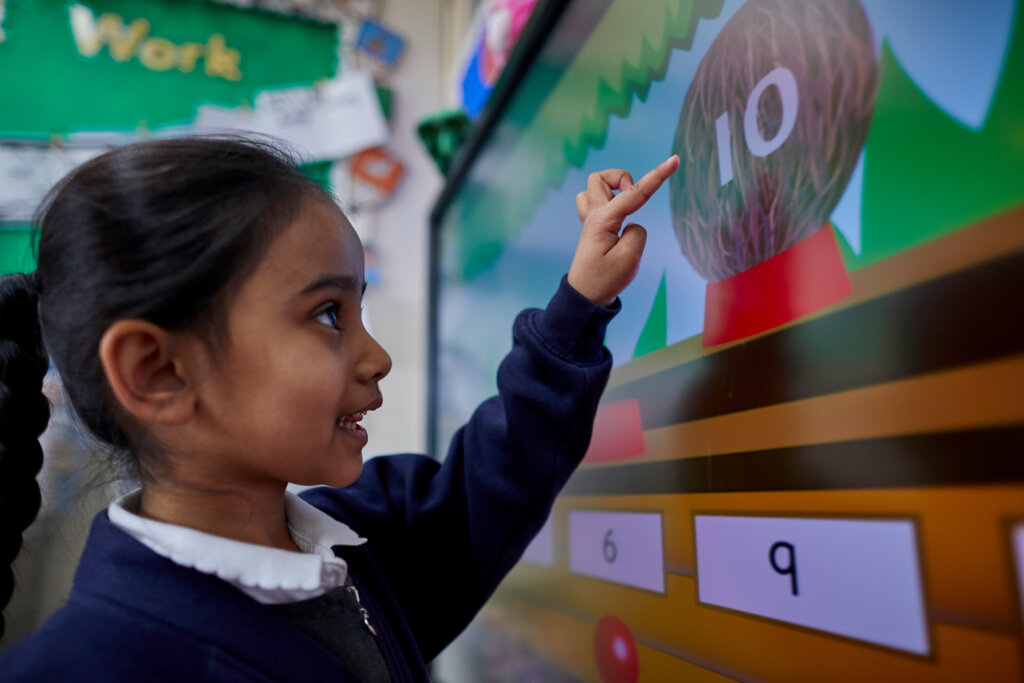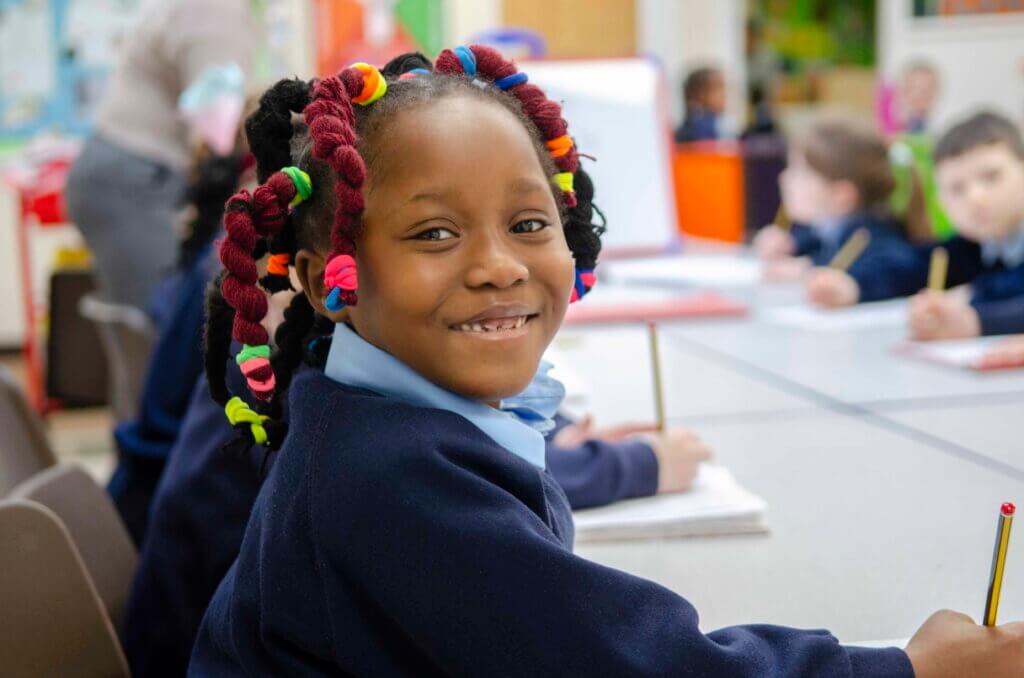What does it mean to be a writer?
In every classroom, there are pupils with a passion for writing. Even in Early Years, they are easy to spot – usually gathered around the writing table, creating brightly decorated cards and pictures. As they progress through the key stages, they might choose to write their own stories, poems or even articles for a school newspaper. Many will write beyond the classroom, perhaps by filling in their diary or adapting a play script for their drama club. According to the National Literacy Trust, 40 percent of children enjoy writing in their spare time.
But what does that mean for the other 60 percent?
Early on in their school lives, children will get a sense of themselves as ‘good writers’ or ‘bad writers.’ The latter might imply to the child that they’re not really a writer at all. It’s true that not every child will go on to become an author, a journalist, or an English teacher. But that’s not to say they don’t have a future in writing.
Whether we are writing a job application, a letter to a local MP, a message of condolence or even a wedding speech, writing interweaves through every aspect of our lives. Most of us write an email or a text everyday – if not a couple dozen! Writing underpins our careers, our connections, our ability to creatively express ourselves and make sense of memories, events and feelings. It also strengthens our ability to read and speak effectively, which are essential skills for people to thrive in the modern world.
The truth is, we are all writers – most importantly, every child is a writer.
Nevertheless, we know that in many classrooms writing tasks will be met with groans of disinterest and frustration by some students. As educators, it is our role to ensure that every child learns the joy and value of writing.
With a Whole School Writing Approach, we can embrace writing throughout the classroom environment and the broader culture of the school, giving every pupil the opportunity to discover their identity as a writer.
What is the current picture of writing in schools?
Research shows that when schools closed due to Covid primary school attainment fell in all three of the core subjects: reading, writing and maths. It became clear that writing suffered the most from the pandemic; all year groups saw greater drops in writing than in any other subject. Overall, the number of pupils working at age-related expectations in writing fell from 73 percent in 2019 to 60 percent in 2021.
As an incredibly complex skillset, writing proved difficult to teach remotely – especially for younger children. Pupils missed many milestones during the pandemic, which has harmed their progression following the return to school. The latest Key Stage 2 SATs results show that just 69 percent of Year 6 pupils met the expected standard in writing, down from 78 percent in 2019.
What are the challenges of writing?
We know it is important for all children to recognise their identity as writers and have the opportunity to discover their own voice, yet immersing pupils in a writerly environment is only the first step. In addition to providing the opportunity to write, we also have to provide the motivation. Consider if all pupils understand the purpose of writing? Do they find pleasure in the writing process? Or do they see it as just another school activity?
When pupils enjoy what they are writing about, they write more and they write better. When pupils have a clear sense of a real world audience that lies beyond the classroom, their writing is focused and they approach the task with a heightened sense of purpose.
Everybody Writes Project Final Report, 2011One Education’s R.A.F.T. structure helps teachers to place real audience and purpose at the forefront of planning, ensuring pupils can find meaning in the writing process with an authentic goal to work towards. This is something we strongly suggest should be included in all classroom writing. (See our previous blog, which explores One Education’s RAFT in more detail).
● Reason: why are we writing?
● Audience: who are we writing for?
● Features: what features do we need to include to make our writing effective?
● Tone: how do we want our writing to sound?
However, writing is a highly demanding task. As the ‘Not-So-Simple View of Writing’ shows, writing requires the integration of multiple strategies, skills and techniques. If children have gaps in any of these areas, their writing can suffer as a result and potentially lead to disengagement.

It can be difficult to break down complex writing tasks, whilst empowering pupils to write with purpose and pleasure. But a whole school writing approach, such as One Education’s PICC a Text, allows us to tie these separate strands together; planning for progression whilst motivating young writers with a shared school vision.
Developing Writing Across the School – The Oldham Writing Project
Like many other school leaders across the country, headteachers in Oldham have found that writing remains uniquely challenging in the road to education recovery. Oldham Learning contacted One Education as they sought out training to support writing across the whole school landscape.
One Education work with many Local Authorities, schools and academies and recognise that responding effectively to the challenges of writing requires more than a quick-fix solution or a prescriptive scheme of work. Instead, it is about inspiring a bespoke, holistic approach that responds to pupils’ particular needs and interests, whilst building on teachers’ expertise and skills.
With this in mind, we designed the Developing Writing Across the School Writing Project with year-specific resources and training, supporting continuity of learning across the key stages. The project consisted of eight days training: one day dedicated to each year group, as well as a day for Literacy Leads. On completion, a virtual session was offered to senior leaders, aligning their expectations with the project’s aims and objectives.
From school readiness and cognitive development, to the physical demands of handwriting, the project considers how teachers can support the development of all the fundamental skills that underlie effective writing. The project explores each of these areas in depth, sharing theory and practical examples to promote best practice in the classroom.
Alongside the complexity of writing, practitioners can find answers to the challenges of writing with pleasure and purpose. In order to ensure that progress was evident within the whole school writing project and support all staff to put theory into practice, one core text was chosen to stand at the heart of the project, a picture book titled Dear Earth by Isabel Otter. Reflecting on the wonders of the natural world, this is a story that children of all ages can relate to. It ends with the hopeful conclusion:
Perhaps if enough of us share the message, we can still save our dear earth.
This text was chosen as a writing prompt to inspire children across the whole school to spread the message across and, ultimately, save the world. At the same time, the text acts as a springboard to support cross-curricular learning by linking to other texts and curriculum experiences. For example, the project explores how Early Years children learn how to care for the school environment and write about their experiences building flower boxes and bug hotels. At the other end of the school, Year 6 pupils can broaden their knowledge of risks to the global environment, with the goal of writing a persuasive speech on tackling climate change to be broadcast on a children’s news channel.
By exposing pupils to a variety of text-types, topics, school trips and activities, teachers can ensure children build the background knowledge and cultural capital they need to generate their own ideas, allowing them to write independently whilst enthused with a real sense of purpose.
Celebrating success and planning for the future
We are delighted that so many practitioners joined us to participate in the Developing Writing Across the School Approach in Oldham, ready to embrace the writing journey from where it begins in Early Years, through to preparing children for the transition to secondary school.
We understand that teachers face many pressures in the current educational landscape, so it can be difficult to find the time to develop a new sequence of work, or create space in the timetable to teach handwriting and spelling alongside other school priorities. However, our writing approach shows that it is possible to embed writing throughout the school ethos, culture and environment, ensuring every child can achieve their full potential as a writer, equipped with the skills and passion for writing that will follow them through life.
We are so pleased to have received such amazing feedback from the schools that took part. After their session, practitioners say they left with a new sense of confidence and optimism in writing. Equipped with a wealth of valuable tools and resources, they feel ready and eager to create a community of writers in their school. We can’t wait to follow up and see the transformations that take place!
“I have so many new ideas! So brilliant to be facilitated by someone who has such a deep understanding of EYFS and the challenges and differences that it involves.”
EYFS Lead and Teacher
“Enthusiastic, passionate and knowledgeable trainer – made me feel excited.”
Year 2 Teacher
“Informative, comfortable atmosphere, lots of useful examples and research, with an opportunity to network with other teachers focusing on writing teaching and learning.”
Year 3 Teacher
A huge thanks to the One Education Literacy team for their inspirational training, resources and support. Developing Writing Across the School Project is a truly wonderful achievement!
See for yourself – a free sample of the resources involved in the Writing Project is attached below.
Example Text Type Progression Plan
If you would like to implement a whole school writing approach in your school, academy or authority then please do get in touch with jo.gray@oneeducation.co.uk to discuss your requirements and find out further details.
Our whole school writing project is based on the principles explored in One Education’s PICC a Text approach.
You may also want to explore our Media Gallery to see our virtual training sessions on offer, including a free introduction to PICC a Text. Alternatively, for those who prefer face to face support, our Training Courses page illustrate what other professional development opportunities our experienced lead practitioners have available.
















